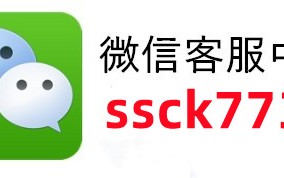One day when is the Dragon Boat Festival?
每年农历五月初五是端午节,2013年的端午节是:2013年6月12日。
The year May in Chinese lunar calendar is Dragon Boat Festival, the Dragon Boat Festival is: June 12, 2013 2013.
端午节简介:
The Dragon Boat festival:
端午节是中华民族古老的传统节日之一。端午也称端五,端阳。此外,端午节还有许多别称,如:午日节、重五节,五月节、浴兰节、女儿节,天中节、地腊、诗人节、龙日等等。虽然名称不同,但总体上说,各地人民过节的习俗还是同多于异的。
The Dragon Boat Festival is one of the oldest traditional festival of the Chinese nation. The Dragon Boat Festival also known as the end of five, the Dragon Boat festival. In addition, there are many nicknames, the Dragon Boat Festival such as: Good afternoon, section, section five, May Festival, bath Festival, daughter of festival, festival days, to LA, poet Festival, dragon, etc.. Although the names are different, but generally speaking, people around the holiday with different customs or more.
过端午节,是中国人二千多年来的传统习惯,由于地域广大,民族众多,加上许多故事传说,于是不仅产生了众多相异的节名,而且各地也有着不尽相同的习俗。其内容主要有:女儿回娘家,挂钟馗像,迎鬼船、躲午,帖午叶符,悬挂菖蒲、艾草,游百病,佩香囊,备牲醴,赛龙舟,比武,击球,荡秋千,给小孩涂雄黄,饮用雄黄酒、菖蒲酒,吃五毒饼、咸蛋、粽子和时令鲜果等,除了有迷信色彩的活动渐已消失外,其余至今流传中国各地及邻近诸国。有些活动,如赛龙舟等,已得到新的发展,突破了时间、地域界线,成为了国际性的体育赛事。
The Dragon Boat Festival, is a traditional Chinese habits of more than two thousand years, because of the vast territory, numerous nationalities, plus many stories, not only have so many different section, but also all over with different customs. The main contents are: his daughter back home, the clock up like, welcome the ghost ship, hide afternoon, with midday leaf character, hang calamus, wormwood, travel sickness, Sachet, prepared sweet wine offerings, dragon boat race, tournament, batting, swing, give children Xionghuang, drinking realgar yellow wine, sweet wine, eat cake, salted eggs, dumplings and seasonal fruits, in addition to a superstitious activities have gradually disappear, the rest has spread throughout China and neighboring countries. Some activities, such as dragon boat racing, has been the development of new, breakthrough time and geographical boundaries, become an international sporting event.
关于端午节的由来,说法甚多,诸如:纪念屈原说;纪念伍子胥说 ;纪念曹娥说;起于三代夏至节说;恶月恶日驱避说,吴月民族图腾祭说等等。以上各说,各本其源。据学者闻一多先生的《端午考》和《端午的历史教育》列举的百余条古籍记载及专家考古考证,端午的起源,是中国古代南方吴越民族举行图腾祭的节日,比屈原更早。但千百年来,屈原的爱国精神和感人诗辞,已广泛深入人心,故人们“惜而哀之,世论其辞,以相传焉”,因此,纪念屈原之说,影响最广最深,占据主流地位。在民俗文化领域,中国民众把端午节的龙舟竞渡和吃粽子等,都与纪念屈原联系在一起。
The origin of the Dragon Boat Festival, is a lot, such as: to commemorate Qu Yuan said; memorial said; to commemorate Cao E said; in three generations of the Summer Solstice Festival said; evil repellent on that evil day, Wu month national totem offering etc.. The above said, the source of this. According to hundreds of ancient records and archaeological research experts and scholars of Mr. Wen Yiduo's "dragon" and "Dragon Boat history exam education" list, the origin of the Dragon Boat Festival, is China's South Wu Yue ancient totem national festival held in the festival, earlier than Qu Yuan. But for thousands of years, Qu Yuan's patriotism and his touching poem, has been widely win support among the people, so people "cherish and cry, the theory of Ci, to how the legend", therefore, to commemorate Qu Yuan said, the most widely affected the most, occupy the mainstream position. In the field of folk culture, the Chinese people in the Dragon Boat Festival Dragon Boat races and eating rice dumplings, are linked with the commemoration of Qu Yuan.
时至今日,端午节仍是中国人民中一个十分盛行的隆重节日。
Today, the Dragon Boat Festival is the Chinese people is still a very popular in the grand festival.
端午节的由来英语版
端午,一开始是为了纪念我国伟大诗人屈原投江,阳光如同天的炉火,燃烧起五月的天地,空气中弥漫着红枣、豆沙、蛋黄和竹叶的清香。哦!一年一度的端午节又来临了。下面,就和放假网我一起来看一看端午节的由来英语版,希望对大家有帮助!
端午节的由来英语版1
The Dragon Boat Festival is traditionally celebrated on the fifth day of the fifth month on the lunar calendar, and is therefore often called 'Double Fifth Festival'. In Chinese, the holiday is called Duan Wu Jie.
The Dragon Boat Festival commemorates the life and death of the famous Chinese scholar-statesman Qu Yuan, who lived some three centuries before the birth of Christ. Qu Yuan was a loyal minister that served the King of Chu during the Warring States Period. Qu Yuan was a highly respected and trusted advisor to the King of Chu. He fought the corruption of other officials of the court.
Initially, Qu Yuan was favored by his sovereign, but over time, his wisdom and erudite ways antagonized the other court officials. Eventually, the intrigues of his rivals exerted enough ill influence on the King that Qu Yuan soon found himself in disfavor. The King began to not listen to Qu Yuan's suggestions and advice. Not long after, the King banished Qu Yuan from Chu. While in exile, Qu Yuan composed many poems expressing his sorrows and concerns for his country and people. Amongst his most famous poems is "Encountering Sorrow," a poem describing his search for a good sovereign that would listen to good advice regarding government.
In the year 295 B.C., at the age of 37, Qu Yuan drowned himself in the Milo River. He clasped a heavy stone to his chest and leaped into the water. Knowing that Qu Yuan was a righteous man, the people of Chu rushed to the river to try to save him. The people desperately searched the waters in their boats looking for Qu Yuan, but they were unsuccessful in their attempt to rescue him. Every year the Dragon Boat Festival is celebrated to commemorate this attempt at rescuing Qu Yuan.
When it was known that Qu Yuan had been lost forever, the local people began the tradition of throwing sacrificial cooked rice into the river for their lost hero. However, a local fisherman had a dream that Qu Yuan did not get any of the cooked rice that was thrown into the river in his honor. Instead, it was the fishes in the river that had eaten the rice. So, the following year, the tradition of wrapping the cooked rice in bamboo leaves was begun. The cooked rice wrapped in bamboo leaves later came to be known as zong zi.
There is also another version of the story. When it was known that Qu Yuan had been lost to the river, the local fisherman had a dream that the fishes in the river were eating Qu Yuan's body. The local people came up with the idea that if the fishes in the river were not hungry, then they would not eat Qu Yuan's body. So the local people began the tradition of throwing zong zi into the river to feed the fishes in hope that Qu Yuan's body would be spared.
龙舟节是在农历的五月五日,在中国也叫做端午节.端午节是要纪念西元前三世纪在中国伟大的爱国诗人屈原.屈原是战国时代楚国最忠诚的大臣,它是皇帝身边最受到敬重和信任的谏言者,也是最受到皇帝宠爱的大臣.他反对朝廷内部的贪污及腐败,他的正直和智慧得罪了不少王公贵人.最后他们陷害了屈原,使得皇帝在也不听信屈原的谏言.不久之后,屈原被驱逐出楚国境内,在流放的时间内,他写了许多的诗,抒发他的悲愤及爱国忧民之情.其中最有名的一首就是「离骚」,描写他在寻找一位肯听谏言的君王,在他三十七岁那一年,他抱著一颗石头投入汨罗江中自尽,人们知道屈原的正直,就赶到江边去救他,他们搭著船努力地在江中寻找他,但是已经无法发现他的踪影,每年龙舟赛就是为了纪念当初以船救屈原的一种庆祝方式.
当大家已经知道无法救到屈原时,当地的居民就把煮熟的米饭投至江中给屈原,但是有一天,屈原托梦给一位渔夫,他说河里的鱼吃掉了那些投入江中的米饭,所以第二年,人们就开始将煮熟的米饭以竹叶包起来,就是今日众所皆知的粽子.
关於粽子的由来,还有另外一种说法.当人们在江中找不到屈原的身体时,而当地的渔夫梦到江中的鱼在吃屈原的身体,当地的居民为了不要让屈原的身体被鱼吃掉,於是想到了一个方法,如果江中的鱼不会饿肚子,他们就不会吃屈原的身体了.於是居民就将粽子投入江中餵鱼,希望鱼儿们不要吃屈原的身体.
端午节的由来英语版2The Dragon Boat Festival, also called Double Fifth Festival, is celebrated on the fifth day of the fifth moon of the lunar calendar. It is one of the most important Chinese festivals, the other two being the Autumn Moon Festival and Chinese New Year。
The origin of this summer festival centers around a scholarly government official named Chu Yuan. He was a good and respected man, but because of the misdeeds of jealous rivals he eventually fell into disfavor in the emperor's court。
Unable to regain the respect of the emperor, in his sorrow Chu Yuan threw himself into the Mi Low river. Because of their admiration for Chu Yuan, the local people living adjacent to the Mi Lo River rushed into their boats to search for him while throwing rice into the waters to appease the river dragons。
Although they were unable to find Chu Yuan, their efforts are still commemorated today during the Dragon Boat Festival。
端午节,又称为五五节,因为端午节是在农历的五月五日,是三个重要的中国节庆之一,其他两个分别是中秋节和农历新年。
这个节日的由来是古代中国有一位博学多闻的官吏屈原,他是一位爱民而且又受到尊崇的官吏,但是由於一位充满嫉妒的官吏陷害,从此在朝廷中被皇帝所冷落。由於无法获得皇帝的重视,屈原在忧郁的情况下投汨罗江自尽。
由於对屈原的爱戴,汨罗江畔的居民匆忙的划船在江内寻找屈原,并且将米丢入汨罗江中,以平息汨罗江中的蛟龙。即使他们当时并没有找到屈原,但是他们的行为,直到今天在端午节的时候,仍然被人们传颂纪念着。
端午节的由来英语版3Duanwu Festival is a traditional Chinese festival held on the fifth day of the fifth month of the Chinese calendar. It is also known as the Double Fifth.[citationneeded] It has since been celebrated,in various ways,in other parts of East Asia as well. In the West,it's monly known as Dragon Boat Festival.
The exact origins of Duan Wu are unclear,but one traditional view holds that the festival memorializes the Chinese poet Qu Yuan(340 BC—278 BC)of the Warring States Period. He mitted suicide by drowning himself in a river because he was disgusted by the corruption of the Chu government. The local people,knowing him to be a good man,decided to throw food into the river to feed the fish so they would not eat Qu's body. They also sat on long,narrow paddle boats called dragon boats,and tried to scare the fish away by the thundering sound of drums aboard the boat and the fierce looking carved dragon head on the boat's prow.
In the early years of the Chinese Republic,Duan Wu was also celebrated as Poets' Day,due to Qu Yuan's status as China's first poet of personal renown.
Today,people eat bamboo—wrapped steamed glutinousrice dumplings called zongzi(the food originally intended to feed the fish)and race dragon boats in memory of Qu's dramatic death.
端午节的由来英语版4The dragon boat festival is a lunar holiday, occurring on the fifth day of the fifth lunar month.
The chinese dragon boat festival is a significant holiday celebrated in china, and the one with the longest history. the dragon boat festival is celebrated by boat races in the shape of dragons. competing teams row their boats forward to a drumbeat racing to reach the finish end first.
The boat races during the dragon boat festival are traditional customs to attempts to rescue the patriotic poet chu yuan. chu yuan drowned on the fifth day of the fifth lunar month in 277 b.c. chinese citizens now throw bamboo leaves filled with cooked rice into the water. therefore the fish could eat the rice rather than the hero poet. this later on turned into the custom of eating tzungtzu and rice dumplings. the celebration's is a time for protection from evil and disease for the rest of the year. it is done so by different practices such ashanging healthy herbs on the front door, drinking nutritious concoctions, and displaying portraits of evil's nemesis, chung kuei. if one manages to stand an egg on it's end at exactly 12:00 noon, the following year will be a lucky one.
notesignificant:重要的drumbeat:鼓声,打鼓patriotic:爱国的concoction:调和物nemesis:报应风俗习惯
Dragon boat race traditions at the center of this festival are the dragon boat races. competing teams drive their colorful dragon boats forward to the rhythm of beating drums. these exciting races were inspired by the villager's valiant attempts to rescue chu yuan from the mi lo river. this tradition has remained unbroken for centuries.
Tzung tzu a very popular dish during the dragon boat festival is tzung tzu. this tasty dish consists of rice dumplings with meat, peanut, egg yolk, or other fillings wrapped in bamboo leaves. the tradition of tzung tzu is meant to remind us of the village fishermen scatterin
Grice across the water of the mi low river in order to appease the river dragons so that they would not devour chu yuan.
Ay taso the time of year of the dragon boat festival, the fifth lunar moon, has more significance than just the story of chu yuan. many chinese consider this time of year an especially dangerous time when extra efforts must be made to protect their family from illness. families will hang various herbs, called ay tsao, on their door for protection. the drinking of realgar wine is thought to remove poisons from the body. hsiang bao are also worn. these sachets contain various fragrant medicinal herbs thought to protect the wearer from illness.
风俗习惯端午节最重要的活动是龙舟竞赛,比赛的队伍在热烈的鼓声中划著他们多彩的龙舟前进。这项活动的灵感是来自於当时汨罗江畔的居民,在江中划船救屈原,而这个传统也一直保持了数个世纪。在端午节时受欢迎的食物就是粽子,粽子是以米包著肉、花生、蛋黄及其他材料,再以竹叶包裹。而粽子的传统则来由於汨罗江边的渔夫,将米丢入江中平息江中的蛟龙,希望他们不要将屈原吃掉。农历的五月,也就是端午节的这个时节,对中国人而言,除了屈原的'故事还有许多其他重要的意义。许多中国人相信五月是一年中容易引发疾病的危险时节,因此必须有许多防备家人生病的措施。许多家庭会将一种特别的植物-艾草挂在门口,
作为保护之用,而人们也会挂带香包,它是以含有多种香味的药用植物所做成,也可以保护人们远离疾病。
端午节的由来英语版5The Dragon Boat Festival, also called the Duanwu Festival, is celebrated on the fifth day of the fifth month according to the Chinese calendar. This festival is to commemorate the death of QU Yuan, an upright and honest poet and statesman who is said to have committed suicide by drowning himself in a river.
The most important activity of this festival is the Dragon Boat races. It symbolizes people‘s attempts to rescue Qu Yuan. In the current period, these races also demonstrate the virtues of cooperation and teamwork.
Besides, the festival has also been marked by eating zong zi (glutinous rice)。 Zong zi is made of glutinous rice stuffed with different fillings and wrapped in bamboo or reed leaves. People who mourned the death of Qu threw Zong zi into the river to feed his ghost every year.
With the changes of the times, the memorial turns to be a time for protection from evil and disease for the rest of year. People will hang healthy herbs on the front door to clear the bad luck of the house. Although the significance of the festival might be different with the past, it still gives the observer an opportunity to glimpse a part of the rich Chinese cultural heritage.
端午节,又称端阳节,是庆祝第五个月的第五天的农历。这个节日是为了纪念屈原之死,一位正直的诗人和政治家,是说已投江自杀了。
本节最重要的活动是龙舟比赛。它象征着人们试图营救屈原。在当前时期,这些比赛也证明了团队合作的优点。
此外,本节还着在这天吃粽子(糯米饭)。粽子是由糯米饭塞满不同的馅料包在竹叶或芦苇叶。人们哀悼屈原将粽子扔到河里喂他的鬼魂每年。
随着时代的变迁,纪念变成了邪恶和疾病的保护对今年剩下的时间。人们会健康草药在前门摆脱房子的坏运气。虽然这个节日的意义可能与过去不同,但仍然给观察者一个机会,看到了丰富的中国文化遗产的一部分。
;本文来自作者[野芳宁]投稿,不代表葡萄号立场,如若转载,请注明出处:https://www.zputao.com/pu/5686.html





评论列表(3条)
我是葡萄号的签约作者“野芳宁”
本文概览:One day when is the Dragon Boat Festival? 每年农历五月初五是端午节,2013年的端午节是:2013年6月12日。 The year M...
文章不错《端午节的英语介绍:端午节是哪天》内容很有帮助